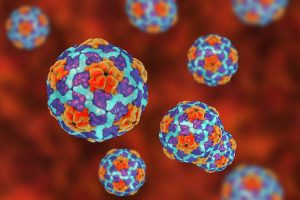Introduction:
Hepatitis A and E are viral infections of the liver caused by the Hepatitis A virus and Hepatitis E virus respectively. Both viruses cause acute liver infection with debilitating symptoms but progressing into advanced chronic liver diseases is very uncommon.
Mode of spread:
Both hepatitis A and E are predominantly spread through the fecal-oral route and can cause epidemics worldwide. If a healthy and unvaccinated person ingests food contaminated with a virus. He/she can develop Hepatitis A or E infection. Hepatitis A one of the most frequent causes of foodborne infection. Water or food contaminated with human fecal matter the leading cause of this infection in Pakistan. Poor sanitation, contamination of drinking water ( even a few drops of sewage mixing) can spread hepatitis A and B rapidly. Recent research in areas of Karachi shows that vegetables irrigated with sewage water. A considerable amount of hepatitis A virus in them.
Closed contact with a person infected with hepatitis A or E, transfusion of infected blood. The male having sex with male and illicit drug use (not only injectable) other modes of spread. Immunocompromised individuals and those on immunosuppressive medication after liver transplant at a significantly higher risk of hepatitis E infection.
The situation in Pakistan:
Hepatitis A and E a matter of increasing concern in Pakistan. With poor urban and rural sanitation facilities and lack of awareness among the general population. Our country a fertile ground for these infections. It estimated that 90 of Pakistani children get infected with hepatitis A before the age of 10. The adult infection ratio remained at 6.0% but has shown a sharp increase in recent years. Hepatitis A considered a self-limiting mild disease with few or no symptoms in some adults but to our dismay. An alarming number of hepatitis A-related liver failure cases have reported in recent studies (Amnasubhan butt and Fatima Sharif, Euroasian journal of Hepato-Gastroenterology).
Hepatitis E showed a sporadic outbreak in areas with contaminated water in Pakistan. Up to 22% of adults and 2.4% of children found acute hepatitis due to the hepatitis E virus. The infection produced catastrophic effects on pregnant women. Resulting in maternal mortality rates ranging between 20 and 29.3 percent and a perinatal mortality rate of up to 30.3 per 1000 live births(Yasmeen T, Hashmi HA, Taj A. Fetomaternal outcome with hepatitis e in pregnancy. J Coll Physicians Surg Pak. 2013 Oct;23(10):711–714. [PubMed] [Google Scholar]).
It also shows a significant mortality rate in patients with pre-existing chronic liver disease.
Sign and symptoms:
Hepatitis A and E are acute viral infections and their symptoms may range from mild to severe. Symptoms develop usually within 2 to 6 weeks of infection. And include jaundice, severe itching, fever, weakness, diarrhea, and vomiting. Pain under the right lower ribs, pale stool, and dark-colored urine. Most of these symptoms may not be present in children and jaundice particularly found to be non-existent in infected adults in Pakistan.
Treatment and Prevention:
Practice good hygiene, wash hands with soap and water after using toilets. Used clean drinkable water not only for drinking but also for doing toothpaste. Avoid improperly cooked fish and meat. Raw cooked food a great source of the hepatitis E virus. Avoid illicit drug use.
Hepatitis A and E diagnosed by the presence of antibodies in the blood and by a reversed transcriptase-polymerase chain reaction.
Both hepatitis A and E considered mild infections that will resolve within a few weeks. No treatment advised for normal healthy people. Pregnant and those with chronic liver diseases should consult their physician. Avoid self-medication, especially Paracetamol and drugs to control vomiting.
Vaccines for Hepatitis A available and very effective even in single-dose but for added immunity and two shots recommended. A vaccine for hepatitis E licensed for use in China but not available elsewhere yet.






